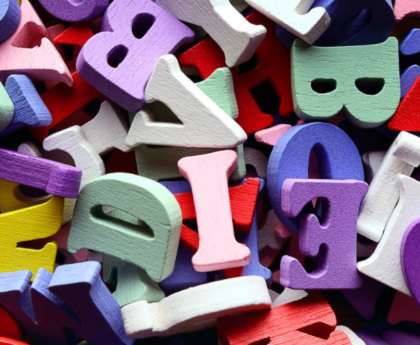Your four-year-old asks big questions. “Why do we have different families?” “What does a mayor do?” “Where do firefighters sleep?”
These aren’t just cute kid questions; they’re the foundation of social studies learning! PreK children (typically 4-5 year olds in the year before kindergarten) are natural social scientists, observing their world and trying to make sense of communities, relationships, and how society works.
The right books transform these questions into exciting discoveries about the world around them. These carefully selected titles not only entertain but also align with PreK learning standards that prepare children for kindergarten social studies concepts.
Community Helpers: The Superheroes Next Door
PreK kids are fascinated by the adults who make their world work. Community helper books satisfy this curiosity while building vocabulary and social awareness.
“Maisy Goes to Hospital” by Lucy Cousins
Maisy’s hospital visit introduces doctors, nurses, and medical equipment in a gentle, non-scary way. Perfect for preparing kids for medical visits while showing how helpers care for our health.
“The Fire Engine Book” by Tibor Gergely
This classic shows firefighters in action, explaining their tools and jobs through an engaging story. Kids learn safety concepts while appreciating these community heroes.
“Corduroy Goes to the Doctor” by Don Freeman
Everyone’s favorite bear gets a check-up, showing medical professionals as kind helpers. Great for reducing anxiety about doctor visits.
Learning activities that work:
- Act out different community helper jobs during playtime
- Visit local fire stations, libraries, or post offices
- Draw pictures of community helpers in your neighborhood
- Practice saying “thank you” to helpers you meet
Community helper books build vocabulary naturally. Kids learn words like “stethoscope,” “uniform,” and “emergency” through story context rather than memorization.
Family Diversity: All Kinds of Families
PreK children notice family differences and need books that celebrate various family structures. These stories help kids understand that families come in all shapes and sizes.
“Families Are Different and Alike” by Bobbie Kalman
This simple book shows families of different sizes, ethnicities, and structures. Perfect for classroom discussions about what makes each family special.
“The Family Book” by Todd Parr
Bright, colorful illustrations celebrate family diversity. Some families are big, some are small, some have two moms or two dads—all families are special.
“A Mother for Choco” by Keiko Kasza
A little bird searches for his mother, learning that families are made through love, not just looks. This book shares a beautiful message about adoption and chosen families.
Conversation starters:
- “What makes your family special?”
- “How are families the same and different?”
- “What do families do together?”
- “How do family members take care of each other?”
Family books help children develop empathy and acceptance. They learn that different doesn’t mean wrong; it means interesting and valuable.
Cultural Celebrations: Our World Is Wonderful
PreK kids love celebrations, making cultural books perfect for building global awareness. These stories introduce traditions, foods, and customs from around the world.
“Everywhere Babies” by Susan Meyers
Shows babies and families from various cultures, emphasizing our shared humanity while celebrating diversity.
“Happy New Year, Everywhere!” by Arlene Erlbach
Explores New Year celebrations around the world, from the Chinese New Year to Rosh Hashanah. Kids learn that people celebrate in many wonderful ways.
“The Name Jar” by Yangsook Choi
A Korean girl starts school in America and worries about her name. It is a beautiful story about cultural pride and acceptance.
Cultural exploration activities:
- Try foods from different cultures together
- Learn simple greetings in other languages
- Look at world maps and talk about different countries
- Celebrate various cultural holidays throughout the year
Cultural books build respect for diversity while satisfying PreK curiosity about how people live in other places.
Neighborhood and Community: Where We Belong
Understanding neighborhoods helps PreK children feel connected to their immediate world. These books explore the places and people that make communities work.
“The Little House” by Virginia Lee Burton
This classic shows how neighborhoods change over time. Perfect for talking about city versus country living.
“City Green” by DyAnne DiSalvo-Ryan
A girl transforms an empty lot into a community garden. Shows how people can work together to improve their neighborhoods.
“Madeline” by Ludwig Bemelmans
Life in Paris introduces different types of communities and architecture. Kids learn about city living through Madeline’s adventures.
Neighborhood exploration ideas:
- Take walking tours of your neighborhood
- Draw maps of familiar places (home, store, playground)
- Talk about neighborhood rules and why they exist
- Identify different types of buildings and their purposes
Neighborhood books help children understand their role as community members and future citizens.
Friendship and Cooperation: Getting Along Together
Social skills are at the heart of social studies for PreK children. Books about friendship teach essential cooperation and conflict resolution skills.
“Rainbow Fish” by Marcus Pfister
A beautiful fish learns about sharing and friendship. Perfect for discussing generosity and inclusion.
“Frog and Toad Are Friends” by Arnold Lobel
Classic stories about true friendship, showing how friends help each other through good times and bad.
“The Way I Feel” by Janan Cain
Helps kids identify and express emotions—crucial for building healthy relationships.
Social skills practice:
- Role-play friendship scenarios from books
- Practice problem-solving when friends disagree
- Talk about feelings using emotion vocabulary from stories
- Create classroom or family rules about treating others kindly
Friendship books provide safe spaces to discuss difficult social situations and practice better responses.
Rules and Fairness: Learning to Live Together
PreK children are developing their sense of fairness and need to understand why rules exist. These concepts form the foundation of later civics learning.
“David Goes to School” by David Shannon
David learns classroom rules the hard way! Perfect for discussing why schools have rules and how they keep everyone safe.
“No, David!” by David Shannon
Home rules and family expectations come to life through David’s mischievous adventures.
Simple concepts about getting along, resolving conflicts, and creating peaceful communities.
Rule discussions for PreK:
- Why do we have rules at home and school?
- How do rules keep us safe and happy?
- What happens when we don’t follow rules?
- How can we solve problems without hurting others?
Rule-focused books help children understand that structure creates freedom and safety for everyone.
Research Shows Early Social Studies Impact
NAEYC resources suggest that early exposure to diverse social studies concepts helps PreK children develop important skills, including tolerance, problem-solving, and community connections.
Early social studies learning also supports language development. Children discussing community, family, and cultural concepts naturally expand their vocabulary and communication skills.
Most importantly, social studies books build the foundation for engaged citizenship. Children who understand their communities become adults who participate actively in making their world better.
Make Social Studies Come Alive for PreK
Connect books to real experiences. After reading about firefighters, visit a fire station. Following a book about families, create family trees or photo displays.
Encourage questions and conversations. PreK children learn through dialogue. Ask open-ended questions that help them think critically about social concepts.
Use dramatic play. Set up pretend play areas that reflect book themes—a doctor’s office, restaurant, or post office. Kids process social learning through play.
Celebrate diversity daily. Don’t save cultural books for special occasions. Make diversity a regular part of your reading routine.
Make connections to children’s lives. Help kids see how book concepts relate to their own families, neighborhoods, and experiences.
Build Empathy Through Stories
The greatest gift of social studies books for PreK children is empathy development. When kids read about different families, communities, and cultures, they learn that everyone has stories, feelings, and needs.
This empathy becomes the foundation for all future social learning. Children who understand and respect differences become the citizens our communities need.
Social studies isn’t about memorizing facts for PreKers—it’s about building hearts that care about others and minds that think critically about the world.
Age-Appropriate Social Studies Concepts for PreK
Perfect for PreK (ages 4-5):
- Family structures and roles
- Community helpers and their jobs
- Basic rules and why they matter
- Celebrating differences and similarities
- Friendship and cooperation skills
Building toward kindergarten:
- Understanding neighborhoods and communities
- Recognizing cultural traditions
- Developing problem-solving skills
- Learning about helping others
- Building respect for diversity
Start with concrete concepts children can observe and experience, then gradually introduce broader ideas about community and world.
Raise Tomorrow’s Citizens Today
Social studies books for PreK aren’t just stories. They’re blueprints for building caring, thoughtful citizens. These books help children understand their place in an interconnected world while celebrating what makes each person and culture special.
Every time you read a book about families, community helpers, or cultural traditions with your PreKer, you’re planting seeds of empathy, curiosity, and civic responsibility that will grow throughout their lifetime.
The questions your four-year-old asks today become the foundation for the contributions they’ll make to society tomorrow.
Ready to build the reading skills that will help your child understand and engage with their world? Reading.com’s science-based approach develops the literacy foundation children need to comprehend complex social studies concepts throughout their educational journey. Start your 7-day free trial today and give your child the reading confidence they need to explore every book about our amazing, diverse world!





